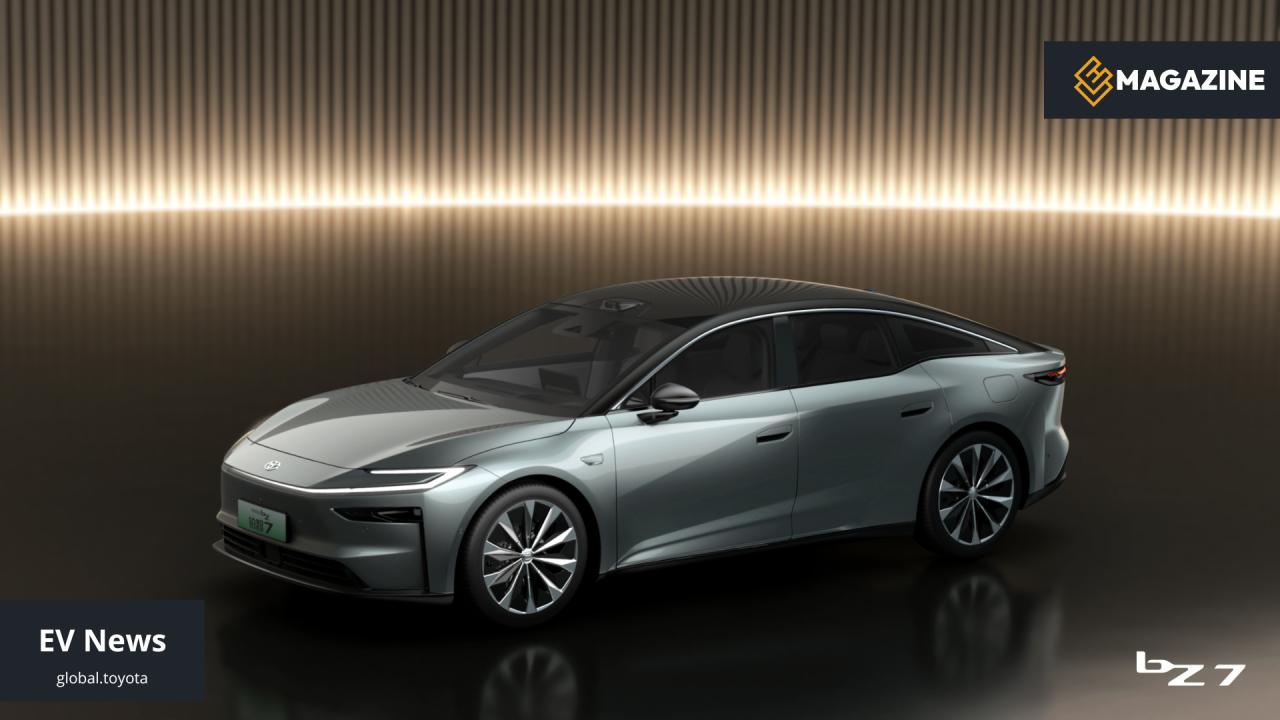1st
2
3rd
A Strategic Alliance: Why Toyota is Turning to Huawei
In a move that underscores the immense pressure on legacy automakers, Toyota is leveraging a strategic partnership with Chinese technology powerhouse Huawei for its next major electric vehicle, the bZ7. This mid-to-large SUV, slated to arrive in Autumn 2025, represents a significant pivot for Toyota, which has faced challenges gaining traction in the hyper-competitive Chinese EV market. By tapping into Huawei's expertise, Toyota aims to bridge the gap in digital and powertrain technology where local brands have excelled.
While Toyota's bZ3 sedan (a collaboration with BYD) was a step in the right direction, the bZ7 project with Huawei signals a much deeper integration with a tech leader. This alliance is a pragmatic acknowledgement that winning in the modern EV era requires more than just reliable hardware; it demands a seamless, intuitive, and feature-rich digital experience that rivals a high-end smartphone—an area where Huawei is an undisputed leader.
Meet the Toyota bZ7: What We Know So Far
Innovation Focus: The bZ7 is engineered to blend Toyota's world-class vehicle engineering with Huawei's leadership in digital ecosystems and electric propulsion. While official performance figures and range are yet to be confirmed ahead of its launch later this year, the focus is clearly on delivering a technologically advanced and highly integrated user experience.
The Huawei Factor: More Than Just a Badge
Huawei's contribution to the Toyota bZ7 extends far beyond basic components. The integration of its core technologies is set to redefine the in-car experience for Toyota customers, potentially setting a new standard for the brand's future EVs, even for the European market.
Huawei's electric motors are known for their efficiency, power density, and sophisticated thermal management. This could provide the bZ7 with a competitive edge in both performance and real-world driving range.
This is the crown jewel. Expect lightning-fast response times, a deeply integrated app ecosystem, and seamless connectivity with other Huawei devices, creating a user experience that feels intuitive and constantly connected.
While not confirmed for the initial bZ7 release, Huawei's advanced ADS (Autonomous Driving System) is a major part of its automotive portfolio. This partnership opens the door for Toyota to integrate high-level driver-assist features in the future.
The vehicle will become a central hub in the user's digital life, interacting with their smartphone, smartwatch, and home devices. This level of integration is a key differentiator in the Chinese market.
Market Impact and What It Means for Europe
This Toyota-Huawei alliance is more than just a single car model; it’s a potential blueprint for how legacy automakers can rapidly innovate. By partnering with tech giants, they can accelerate development cycles and deliver the cutting-edge features that consumers now demand. For the European market, this is a trend to watch closely.

